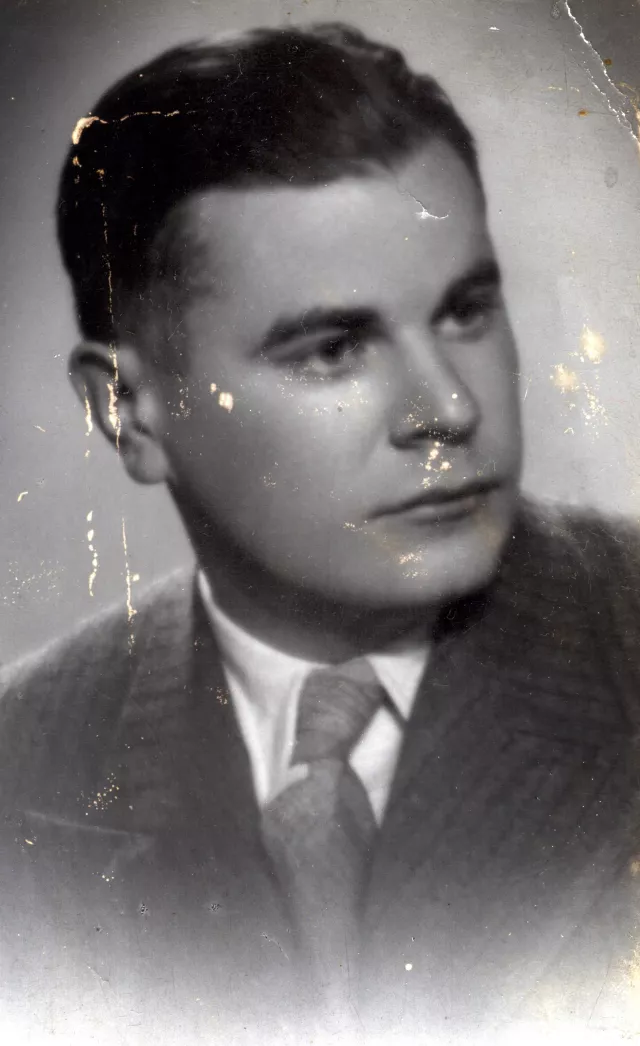Simon Libman
This is a pre-war photograph of my husband Simon Libman. It was taken in Riga in 1939.
After the war, my parents' friends, the Dubovski family, also returned to Tallinn and lived in a communal apartment. One of the families sharing their apartment was the Jewish Bahmat family. The head of the house, Isaac Bahmat, used to be an inspector in our Jewish gymnasium before the war, and prior to that he had been a school administrator in Valga. In fall 1945, the Dubovskis invited our family to their home. During our visit, Madame Bahmat peeked in and invited everyone to have some tea and home-made pie. Visiting them just at the same time was a very good-looking young man. He was Simon Libman, their friend from pre-war Valga. Later, I realized that this meeting didn't happen by accident: it had been set up by Madame Dubovski and Madame Bahmat. Simon and I started seeing each other. It turned out he lived just across the street from us. Simon was twelve years older than me and I liked it. I didn't like men of my own age, they all seemed too childish. Simon was born in Valga into a large and once very prosperous Jewish family. He finished a German elementary school in Valga, then an Estonian secondary school, and then he entered Tartu University in 1932 to study economics. Simon's father used to own several houses and large shops in Valga but went bankrupt in the mid-1930s.
Simon's two elder sisters, Rasse and Sofia, were already married by then, and his youngest sister, Martha, still lived with her parents. Simon and his younger brother, Abi, went to university at the same time. Abi studied Judaics. Being the elder brother, Simon decided to abandon his studies and started working so that his younger brother would have a chance to complete his education. Simon joined a lumber-trading company and worked as a manager until 1941.
The advent of Soviet power in 1940 went smoothly for the Libman family because they had nothing which could be taken away from them. As the war began, they managed to leave and go into evacuation but as they were traveling their father died. The train approached Yaroslavl and they all got off, found a Jewish cemetery and buried him according to Jewish traditions. Simon's mother and sisters lived in Tajikistan during the war while Simon and Abi fought in the Estonian Rifle Corps participating in action near Velikiye Luki. Both of them were officers and they both joined the Communist Party when on the battle-front.


















